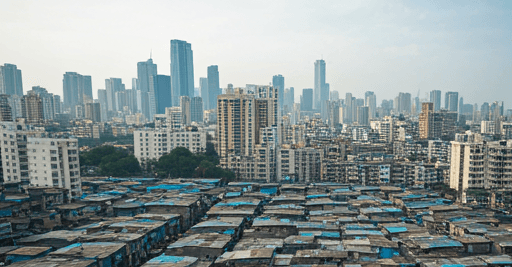On Thursday evening, as the new Mahayuti government was sworn in at Mumbai’s historic Azad Maidan, the air carried more than just political tension. The temperature hovered around 32°C—a noticeable drop from the previous day, yet unusually warm for December. This climatic oddity was mirrored by the political haze surrounding the coalition, with Eknath Shinde taking a backseat as deputy to Chief Minister Devendra Fadnavis, a striking reversal of roles.
The physical haze over Mumbai was equally conspicuous, blurring the city’s skyline and shrouding its gleaming infrastructure. While the haze might dissipate with December’s cooling winds, it raises critical questions about the broader climate crisis that looms over urban centres like Mumbai. The city’s struggles with rising temperatures, air pollution, and extreme weather events are emblematic of challenges faced by metropolises worldwide. This conversation gains urgency in the aftermath of COP29, held in Baku, Azerbaijan. The summit underscored the ever-widening chasm between the Global North and South on climate finance. Developing nations demanded $1.3 trillion annually for mitigation and adaptation; the developed bloc reluctantly pledged $300 billion—starting only in 2035. Cities, responsible for 70% of global emissions, remain ground zero for climate impacts such as heatwaves, flash floods, and air pollution. For Mumbai’s vulnerable millions—slum dwellers, outdoor workers, and migrants—these events are often life-threatening.
The data is stark: Mumbai’s slums house 6.5 million people, many in precarious conditions. Flash floods in September claimed four lives, while the infamous deluge of August 2017 killed nearly 1,000. Despite their low carbon footprint, the urban poor bear the brunt of climate impacts, lacking the resources to adapt or recover. In contrast, the city’s billionaires—92 of whom make Mumbai Asia’s wealth capital—face such challenges as mere inconveniences. COP29, like its predecessors, failed to spotlight these glaring inequalities. Ironically, it was hosted by a petro-state, attended by fossil fuel executives, raising questions about the conference’s integrity. While the platform remains indispensable for holding developed nations accountable, the urgency for local action has never been greater.
Mumbai’s leadership must embrace a deeper understanding of climate change’s interconnectedness with urban life, especially for its most vulnerable citizens. From slum rehabilitation to addressing heat and air pollution, holistic, inclusive strategies are critical. As Maharashtra’s other cities mimic Mumbai’s development model, ignoring the climate crisis could prove disastrous. The political haze, like the climatic one, must clear. For the newly sworn-in government, this is not just an environmental imperative but a governance challenge that cannot wait for another COP to address.


